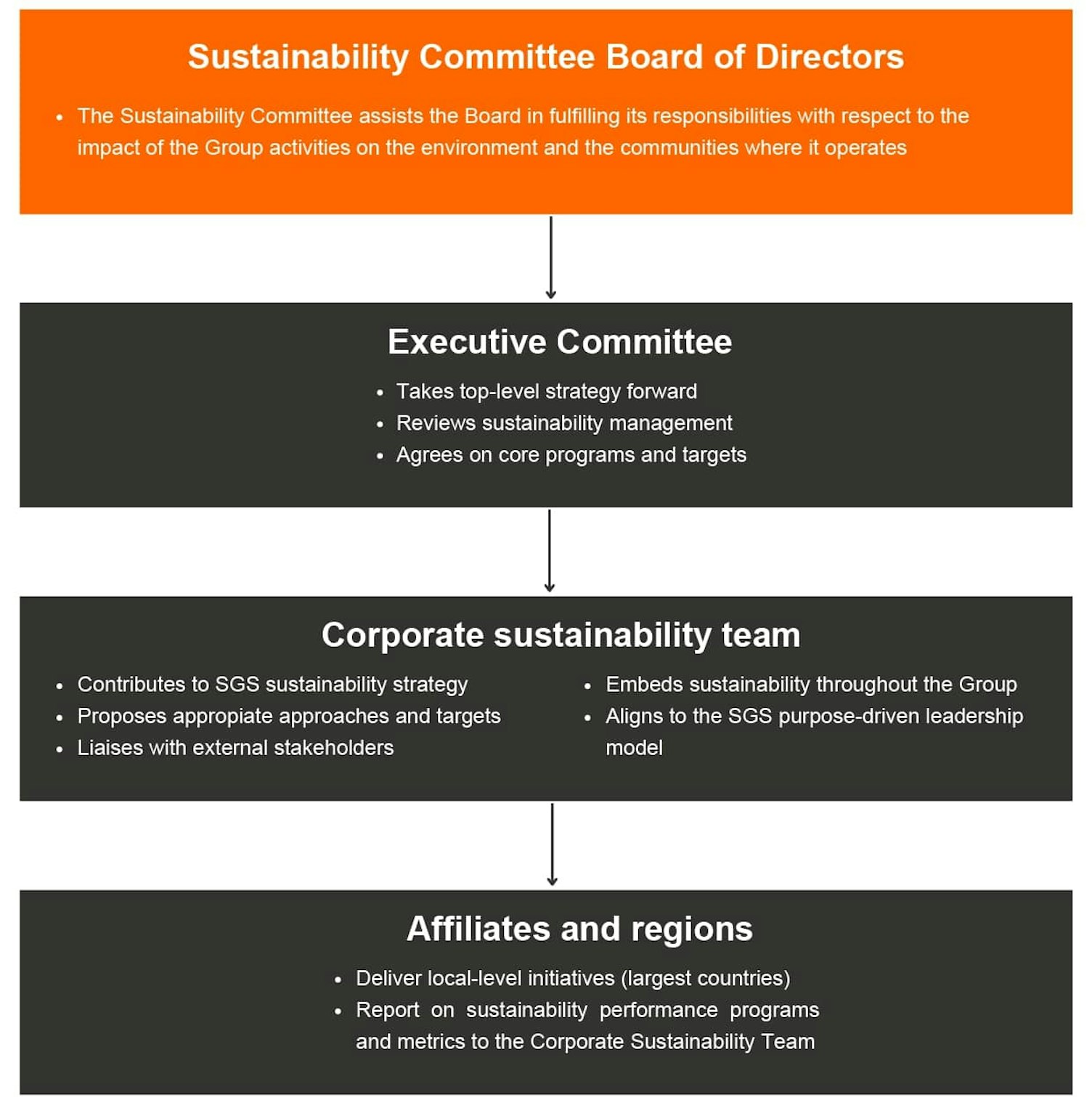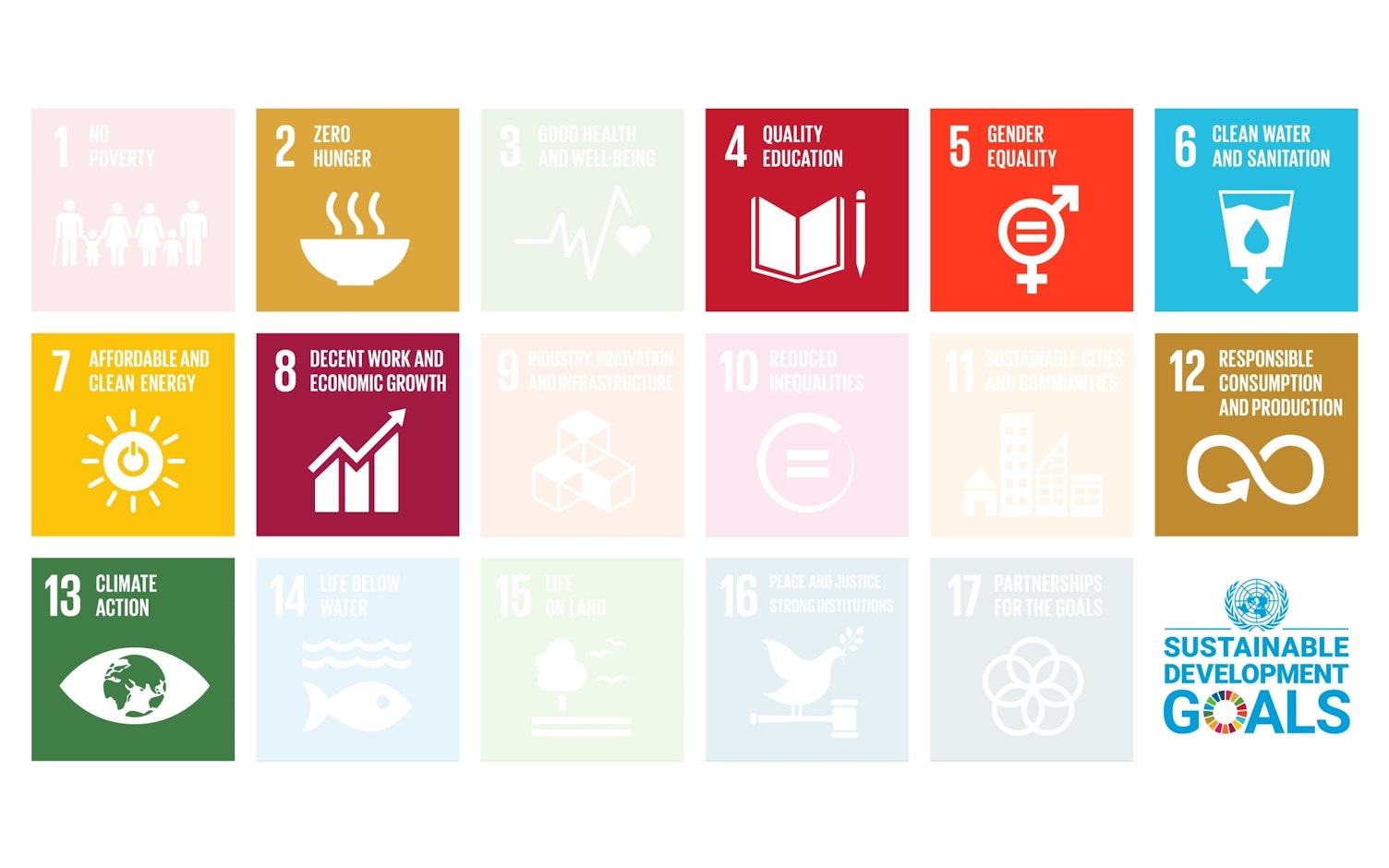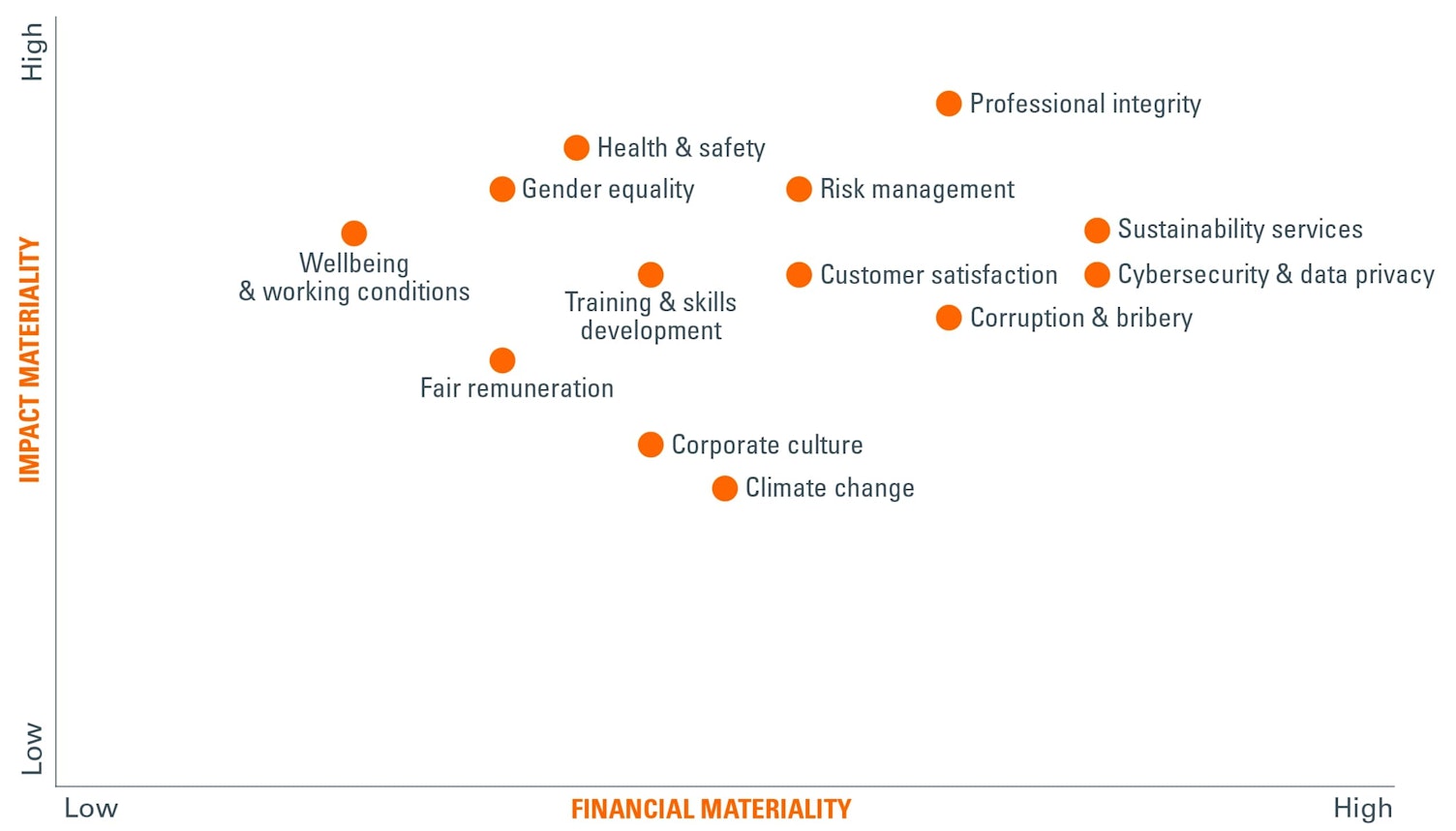Our Sustainability Governance
A strong governance structure ensures that sustainability remains at the heart of our activities. The top management is actively involved in overseeing the delivery of our sustainability strategy.
At Board of Directors level, the Sustainability Committee Board of Directors assists the Board in defining the Group policies and strategies related to sustainability.
The SGS Executive Committee takes the overall strategy forward, approving and implementing more detailed strategies, policies and targets through all operations across the Group.

Principles and Policies
Sustainability is one of our six business principles – the overarching beliefs and behaviors that guide all our decisions. Each business principle is underpinned by a policy statement that defines our commitments. Then, more detailed operational policies describe the rules that must be observed by our employees and subcontractors.
Learn more about our business principles and policy statements:
Double Materiality Matrix
We are the first TIC company to have published a double materiality assessment in line with Corporate Sustainability Reporting Directive (CSRD) requirements.
The CSRD significantly increases the number of disclosures companies must make about material or relevant sustainability matters. The first step toward identifying these topics is to perform a double materiality assessment, in which two types of materiality are assessed:
- Impact materiality: the impact that the company has on the relevant topics
- Financial materiality: the effects that these relevant topics could have on the company’s financial performance
Our meticulous assessment involved a thorough review of our value chain, stakeholder prioritization and direct consultations. Fully aligned with our annual risk assessment, the results have been rigorously reviewed and approved by our top management. The process was developed during 2023, finalized in 2024, and will be reviewed and updated at least once a year.
The matrix below outlines the distribution of material topics, offering a clear roadmap for our sustainability journey. It marks the beginning of a resolute transition to align with the CSRD.
United Nations Sustainable Development Goals (SDGs)
To maximize our active contribution to the SDGs, we have selected those most aligned with our business model and determined specific measurable goals for our supply chain, direct operations and services. This way, we ensure progress tracking and transparency.
Our Sustainability Ambitions 2030 include environmental, social and governance goals for our whole value chain especially designed to ensure that our positive impacts are aligned with the SDGs. In the image you can see some of the SDGs we focus on as well as some examples of our contribution. More examples can be found in our Integrated Report.

Examples of our contribution:
SDG 2: zero hunger
Gafta sustainability pledge
Over 100 of our labs, fumigation and inspection operations are now included in the Grain and Feed Trade Association (Gafta) sustainability pledge directory. This demonstrates our company-wide commitment to following – and promoting – sustainable industry practices.
SDG 4: quality education
SGS Academy
Our SGS training programs cover a wide range of topics related to areas such as quality, sustainability, performance, and health and safety. We offer bespoke training from industry experts, and our courses are designed for different levels of ability to address the needs of any industry.
Moreover, SGS Academy for the Community provides high-quality technical training to people earning less than the average living wage in the communities where we operate. The aim of this pro-bono initiative is to support local economic development by enhancing access to quality employment.
SDG 5: gender equality
Women in leadership
We are progressing against our 2027 of at least one third of leadership positions held by women by taking proactive steps, from recruitment (our recruitment academy helps avoid conscious or unconscious biases), to policies (for example on antidiscrimination and dignity at work) and reward (taking action on our gender pay gap).
Providing diverse, inclusive and equal opportunity employment in India
In India, we are working to enhance gender diversity. This includes actively implementing a Gender-Neutral Workspace in collaboration with key stakeholders and other initiatives such us YouINSPIRE, a quarterly platform fostering connections among women staff at SGS India, featuring empowering workshops, and an actionable ally workshop for managers on women talent.
SDG 6: clean water and sanitation
World Class Service (WCS) laboratories
Each year, more of our laboratories adopt the WCS methodology to build a culture of operational excellence and resource efficiency – optimizing use of raw materials, such as water.
SDG 7: affordable and clean energy
EEB program and onsite reduction projects
Our EEB program evaluates and reduces the energy consumption in new and existing buildings across the group. The action plans developed for each affiliate provide specific guidance on steps that can be taken to become more energy efficient. Each plan identifies the affiliate’s key facilities, the KPIs that need to be monitored and the opportunities to improve energy efficiency performance.
SDG 8: decent work and economic growth
Human rights policy and report
Our human rights policy has recently been updated to better reflect our commitment. Our human rights report consolidates the principles, policies and initiatives that demonstrate our commitment to human rights.
SDG 12: responsible consumption and production
Sustainable Procurement
Our Global Procurement and Supply Chain Management Strategy places a heavy emphasis on sustainable procurement, helping us drive responsible production practices among more than 60,000 suppliers.
SDG 13: climate action
Decarbonization strategy
Our decarbonization strategy comprises two pillars, (1) to reduce fuel and energy consumption at source, via initiatives such as our Energy Efficiency in Buildings program or our Vehicle Emissions Policy, and (2) to use renewable energy whenever possible. While this is the focus during the initial phase of our journey, we are also committed to secure durable carbon removals to offset the impact of any emissions that remain unavoidable in the latter stages of the journey.
Spot the Orange Dot initiative
We cultivate a sustainability culture where the goal is to enhance eco-friendly practices by using fewer resources and reducing our emissions. In pursuit of this objective, we introduced Spot the Orange Dot, an awareness initiative about identifying sustainability action spots, where a real difference can be made, with orange dots. These orange dots range from straightforward, such as stickers near light switches, to inventive and abstract, like an eco-driving course.
